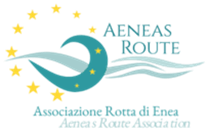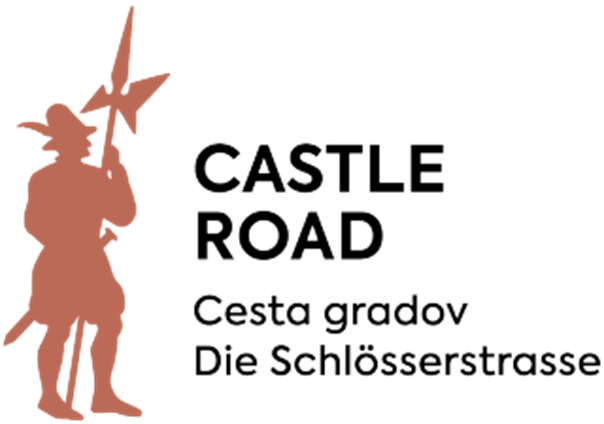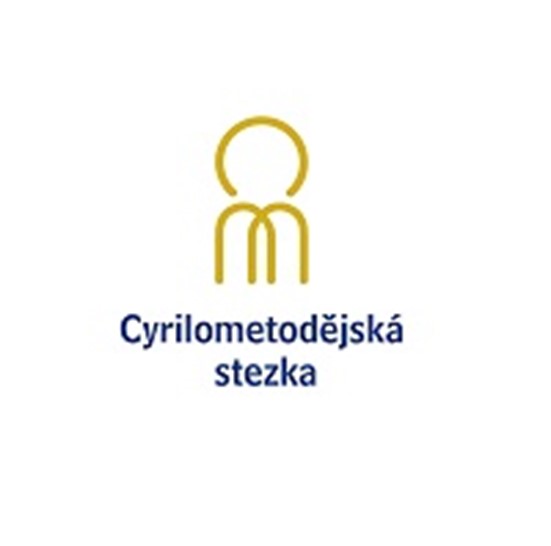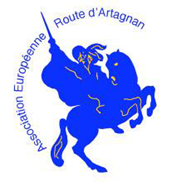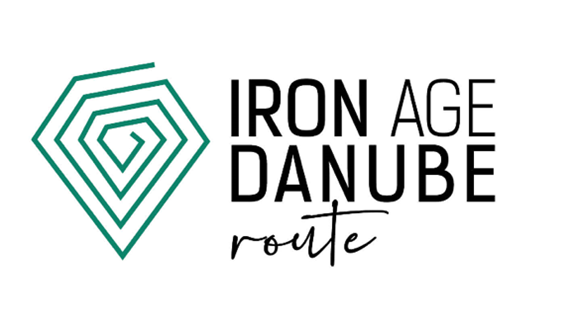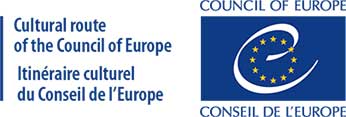
Application for certification
(2020-2021 cycle)
Each year, the Enlarged Partial Agreement on Cultural Routes of the Council of Europe (EPA) awards the certification "Cultural Route of the Council of Europe" to cultural route network applicants fulfilling the criteria set out in Council of Europe Committee of Ministers Resolution CM/Res(2013)67.
13 candidate networks to the "Cultural Route of the Council of Europe" certification are subject to evaluation in the framework of the 2020-2021 Certification Cycle:
- Aeneas Route
- Alvar Aalto Route – 20th Century Architecture and Design
- The Castle Road - Habsburg’s Southeastern Bulwark
- Cyril and Methodius Route
- The European Route d’Artagnan
- Culture Route of Fortified Monuments – FORTE CULTURA
- Iron Age Danube Route
- Mary’s Route
- Places of Peace
- Saint Francis’ Ways
- European Route of Templar Heritage
- Via Eurasia
- Via Molina – European Mill Route
|
Responsible Network: Aeneas Route Association Website: www.aeneasroute.org / www.rottadienea.it Headquarters: Via San Francesco di Sales 90 – Rome – Italy / Turkish headquarters c/o International Relations Office of Edremit Municipality, Yılmaz Akpınar Bulvarı, Turkey President: Giovanni CAFIERO Manager: Elisa FALCINI |
|
The Aeneas Route is an archaeological route that stretches from the coasts of Turkey (North-West Aegean Sea) to the shores of Latium Vetus in Italy through a maritime and, at places, overland track. This route is inspired by the legend of Aeneas as it was narrated by the Latin poet Virgil in the Aeneid epic. The legend tells the story of a mythological figure, “Aeneas”, who was called by the gods to establish a new city of Troy after it was invaded by the Greeks and set on fire. He embarks on an adventurous journey across the central-eastern Mediterranean to find a suitable place to build the new Troy. He finally settles in Latium to build Lavinium, eventually leading to the foundation of Rome and the Roman Empire. Throughout the centuries, the narration of Aeneas became a common cultural heritage that unites different Mediterranean countries and civilisations and is the subject of countless paintings, mosaics and works of art. Aeneas Route is a network of the most important archaeological sites in Europe linked to the legend of Aeneas, some of them UNESCO World Heritage Sites. The archaeological sites of the route do not belong to the same historical period but are linked by the fact that they are mentioned by Virgil in the Aeneid. Countries involved in the Network: 28 members in 5 countries: Albania (1), Greece (1), Italy (22), Tunisia (1), Turkey (3). [As per information submitted by the network in July 2020]. |
|
Responsible Network: Cultural route on Alvar Aalto’s architecture and design heritage (Association) Website: https://visit.alvaraalto.fi Headquarters: Tiilimäki 20, FI-00330, Finland President: Heli LEINONKOSKI Manager: Noora KIILI |
|
Alvar Aalto (1898-1976) was a pioneer of modern architecture and design, who enjoyed an exceptionally rich and varied career. His works cover 6 decades, and include over 200 existing buildings in Finland, Denmark, Sweden, Estonia, Germany, France, Italy, Switzerland, Iceland and the USA. Alvar Aalto Route – 20th Century Architecture and Design offers sites and sensations amidst the architectural landmarks of the renowned architect. The international influence of Alvar Aalto’s works in his own time and post-mortem is tremendous. His works influenced international building standards and construction principles throughout Europe. Alvar Aalto’s public architecture included town plans, libraries, theatres, culture centres and educational buildings for cities, communities and organisations. Aalto’s architecture and design materialized the principles and ideals of what later became known as the symbols of the advanced Nordic welfare societies. Countries involved in the Network: 47 members in 5 countries: Denmark (1), Finland (41), France (1), Germany (3), Estonia (1). [As per information submitted by the network in July 2020]. |
|
Responsible Network: Castle Road Association Website: www.schloesserstrasse.com Headquarters: Kapfenstein 105, 8353 Kapfenstein, Austria President: Andreas BARDEAU Manager: Sonja SKALNIK |
|
The Castle Road – Habsburg’s Southeastern Bulkwark is a 1001 km long route connecting 41 castles on the former border of the Holy Roman Empire of the German Nation. The castles were built from the middle ages until the 18th-century and functioned as a defensive line. Through Europe’s historical evolution, one of the world’s greatest concentrations of castles developed at the centre of the continent. With time, most of these castles evolved from defensive facilities directed against enemies from the East to beautiful palaces representing architectural styles from the Romanesque to Romanticism. They offer gardens, culinary experiences, wine cellars, movement and enjoyment, art galleries, architectural beauty, artisanry and handicraft. The Castle Road also aims to illustrate the development of Central Europe from military conflict to cultural cooperation. Countries involved in the Network: 41 members in 3 countries: Austria (28), Croatia (4), Slovenia (9). [As per information submitted by the network in July 2020]. |
|
Responsible Network: European Cultural Route of Saints Cyril and Methodius Website: http://www.cyril-methodius.eu/ Headquarters: A. Bati 5520; 760 01 Zlín; Czech Republic President: Jan PIJÁČEK Manager: Martina JANOCHOVÁ |
|
The Cyril and Methodius Route presents a set of trails focused on travelling in the footsteps of Saints Cyril and Methodius and their followers (the Seven Saints Apostles). It connects places, heritage sites, cultural institutions and other tourist attractions across 7500 km, interconnecting countries of Central, Eastern and Southern Europe. Saints Cyril and Methodius, the co-patrons of Europe, are considered to be the two most influential missionaries, having played a principal role in introducing Christianity and developing culture in Slavic countries. They indirectly influenced the formation and organization of early medieval European countries, being symbols of the fundamental values of European civilization – education, Christianity and the dialogue between religions, cultures and nations. Countries involved in the Network: 19 members in 6 countries: Bulgaria (1), Czech Republic (6), Greece (1), Hungary (1) Slovakia (9), Slovenia (1). [As per information submitted by the network in July 2020]. |
|
Responsible Network: Association Européenne de la Route d'Artagnan Website: https://www.route-dartagnan.eu/ Headquarters: Conseil Départemental du Gers - 81 route de Pessan 32000 Auch, France President: Alain LIBEROS Manager: Audrey PARET |
|
The European Route d'Artagnan is a physical and linear hiking itinerary, established on the basis of historical and literary documents that retrace the epic of Charles de Batz de Castelmore d'Artagnan. The Route retraces the peregrinations of the Captain-Lieutenant of the First Company of Musketeers who accompanied King Louis XIV on all his journeys in the 17th century, as well as the paths travelled during "special missions" entrusted by the King or Cardinal Mazarin, his Prime Minister, in 6 countries and 15 regions. D'Artagnan and the Musketeers criss-crossed Europe throughout their lives in the service of the king. They left behind them an important intangible cultural and historical heritage, which the European Route d'Artagnan highlights thanks to the six itineraries established over 6,000 km, each one telling a singular story of the life of d'Artagnan. Countries involved in the Network: 45 members in 4 countries: Belgium (6), France (36), Netherlands (2), Spain (1). [As per information submitted by the network in July 2020. The application also includes a list of 44 individual members in Belgium, France and Portugal]. |
|
Responsible Network: FORTE CULTURA Network of the Culture Route Fortified Monuments (association) Website: www.forte-cultura.eu Headquarters: FORTE CULTURA e.V., c/o ECCOFORT, Albertinenstraße 1, 13086 Berlin, Germany President: Frank RIESBECK Manager: Dirk RÖDER |
|
The Culture Route of Fortified Monuments - FORTE CULTURA focuses on architecture and monuments that were built to protect cities and towns. It represents Europe's unique cultural heritage of fortress architecture and fortified monuments. Huge walls, majestic gates, towering bastions, geometrical fortress towns, bunkers and defensive lines have served to protect people and regions from enemy attacks for thousands of years. At the end of the Middle Ages, modern fortress construction spread across all regions of Europe and reached during the Renaissance its skilled climax and variance. As attractive places of experience for modern society, many disused fortifications today offer an enormous variety of cultural events, exhibitions, active tourist offers, nature experiences, enjoyment and education and preserve the memory of historical events. Countries involved in the Network: 57 members in 15 countries: Belgium (4), Croatia (3), Finland (2), France (2), Germany (16), Ireland (2), Italy (3), Hungary (1), Lithuania (1), Montenegro (1), the Netherlands (16), North Macedonia (1), Poland (3), Spain (1), Ukraine (1). [As per information submitted by the network in July 2020. The application also includes a list of 14 individual members in Austria, Croatia, Germany, Italy, Poland and Slovakia.] |
|
Responsible Network: Iron Age Danube Route Association Website: www.ironagedanuberoute.com Headquarters: Trg Nikole Šubića Zrinskog 19, 10000 Zagreb, Croatia President: Sanjin MIHELIĆ Manager: Marta RAKVIN |
|
The Iron Age Danube Route enhances the Danube Region’s archaeological heritage of the last millennium BC (approx. 800 BC – 0). This period, considered the Iron Age, follows the Stone, Copper and Bronze Age and was a period of major technological and social changes, which also influenced the landscapes in an unprecedented way. The inhabitants of Central Europe at that time left very limited written sources, but their lives are documented by archaeological traces. The Iron Age Danube Route presents these Iron Age landscapes, characterized by monumental constructions, such as fortified hilltop settlements, oppida, tumulus cemeteries, flat graveyards, and complex organization of space, roughly dated to the era between the 9th century BC and the end of the 1st century BC. Along the Iron Age Danube Route, travellers can discover archaeological or open-air museums, reconstructed houses and tumuli, as well as archaeological trails. Countries involved in the Network: 11 members in 4 countries: Austria (1), Croatia (5). Hungary (2), Slovenia (3). [As per information submitted by the network in July 2020]. |
|
Responsible Network: International Network Association of the Mary’s Route (Legal entity in process of establishment) Website: http://mariaut.hu/, www.mariaut.ro, https://www.mariaut.sk/, www.marysroute.org, www.mariaut.org Headquarters: 1024 Budapest, Keleti Károly utca 26, Hungary President: Tamás SZABÓ Manager: Zsófia GALGÓCZINÉ DR. SZABÓ |
|
Mary’s Route is a pilgrimage route linking sites of the Christian veneration of Mary. It addresses the Christian tradition of reverence for Mary and its live appearance today. In Central Europe more than 150 shrines incarnate the living tradition of the veneration of Mary with countless holy wells, statues and regional sacred memories. These shrines are visited by 6-7 million pilgrims every year. Mary’s heritage is present not only in buildings, sculptures, paintings and objects, but also in action and deeds. Across more than 6000 km, visitors can discover centres of pilgrimages and of veneration of Mary by foot, by bike, by horse and even by sailing along the Danube river. Mary’s Route reveals the natural and cultural treasures and traditions of the countries it crosses. Countries involved in the Network: 112 members in 3 countries: Hungary (105), Romania (2), Slovakia (5) [As per information submitted by the network in July 2020. Full list of members by country in annex. The application also includes a list of 90 individual members in Hungary, Romania and Slovakia]. |
|
Responsible Network: European Network of Places of Peace Website: www.placesofpeace.eu Headquarters: Rua da Corredoura 3, 7100-309 Evoramonte, Portugal President: Eduardo BASSO Manager: Apolónia RODRIGUES |
|
The European Network of Places of Peace aims to promote locations where peace has been made throughout European history. It links sites where peace treaties have been signed or a culture of peace was promoted. The sites that are currently part of the network cover a vast historical period: from the 11th century for Bautzen to the 20th century for Bucharest. Throughout history, the signing of peace treaties has redrawn the map of Europe and changed living conditions regarding political, religious, economic and social development. Places of Peace seeks to retain the collective historical memory of the Peace Treaties and their positive consequences for the development of Europe. Countries involved in the Network: 13 members in 8 countries: Bulgaria (2), Croatia (1), Germany (3), Hungary (1), Portugal (3), Romania (1), Slovakia (1), Spain (1). [As per information submitted by the network in July 2020]. |
|
Responsible Network: ATS Saint Francis’ Ways (Temporary Purpose Association) Website: www.francescosways.com, www.saintfrancisways.eu Headquarters: c/o ATS Saint Francis’ Ways – Via Gela 73, 00182 Rome, Italy President: Paolo GIULIETTI Manager: Raffaella ROSSI |
|
Saint Francis’s Ways is an international pilgrimage route linking sites and routes that Francis of Assisi visited in his lifetime. The mendicant orders established between the 7th and 8th century were characterized by a strong inclination towards travel to spread the Gospel. The Franciscan Order was no exception; Francis and his brothers moved incessantly to preach the Word. Francis’ travels retraced the primary land and sea routes and passed through the most important cities of his time, but also across mountains and forests to retreat in prayer and penitence. Among its sites, the route connects Assisi with great destinations of medieval spirituality such as Santiago, Rome and Jerusalem. The network was born with the aim of linking the enormous cultural heritage (architecture, history, literature, science) associated with the figure of Francis of Assisi and his disciples. Countries involved in the Network: 21 members in 9 countries: Croatia (1), Hungary (1), Israel (2), Italy (9), Palestine (3), Portugal (1), San Marino (1), Slovakia (1), Spain (2). [As per information submitted by the network in July 2020]. |
|
Responsible Network: Templars Route European Federation Website: https://www.templars-route.eu/fr/ Headquarters: 34 quai Dampierre, 10000 TROYES, FRANCE President: Anabela FREITAS Manager: Christelle TAILLARDAT |
|
The European Route of Templar Heritage aims to connect the written and built traces of memory of the Order of the Temple throughout Europe. This religious military order was founded in Jerusalem, officialised in France and then extended by the Order of Christ in Portugal, following its dissolution by Pope Clement V in 1312. Initially, the Templars were the road police, escorting pilgrims on their way to Jerusalem. A logistical and economic organisation was developed through a network of rural and urban commanderies to supply the fortresses built on the Mediterranean rim in Europe and the East. Countries involved in the Network: 21 members in 6 countries: France (13), Italy (2), Luxembourg (1), Portugal (3), Spain (1), United Kingdom (1). [As per information submitted by the network in July 2020].
|
|
Responsible Network: The Cultural Association of the Via Eurasia Website: http://viaeurasia.org/ ; http://avrasyayolu.org/; http://cultureroutesinturkey.com/via-eurasia/ Headquarters: 23, Komninon str., 54624 Thessaloniki, Greece (legal address); Haşim İşçan Mh, 1297. Sk. No:14, 07100 Muratpaşa/Antalya, Turkey (social address) President: Holger De BRUIN Manager: Kate CLOW |
|
The Via Eurasia is a Cultural Route connecting historic roads, mainly Roman or even earlier constructions. These roads which linked old and new Rome and other parts of the Empires were used for millennia as trade and military routes. Stretching from Italy across the Balkans and Greece to Turkey, the route enhances the art of roadmaking, engineer techniques as well as the intangible and tangible heritage associated to its accompanying infrastructure. Via Eurasia illustrates the development of roads as the basic land-based communications infrastructure both within and between nations. Its network includes parts of the Persian Royal Road, pre-Roman local road networks, major Roman arteries and Roman roads which were later adopted and repaired by succeeding civilisations (Byzantine, Ottoman). Countries involved in the Network: 20 members in 5 countries: Albania (1), Greece (2), Italy (3), Netherlands (2), Turkey (12). [As per information submitted by the network in July 2020. Full list of members by country in annex]. |
|
Responsible Network: Via Molina - The European Mill Route e.V. (association) Website: www.viamolina.eu Headquarters: Schwarzer Weg 2, 32469 Petershagen, Germany President: Johannes WEINING Manager: Nicole BAKKER |
|
Via Molina - The European Mill Route presents the more than 1000-year-old cultural heritage of mill technology in Europe and the development of the driving force from the muscle power of humans and domestic animals to the use of the natural forces of wind and water. Via Molina connects a few still working mills and various preserved monuments in naturally exposed locations, inviting cycling and walking tourists to discover the multiple links between architectural heritage, natural space and technology. The route features a wide variety of mills, including windmills, watermills, horse mills, hand mills and machine-driven mills. Countries involved in the Network: 3 national associations members in 3 countries: Denmark (1, composed of 150 members), Germany (1, composed of 1000 members), Netherlands (1, composed of 1200 members). [As per information submitted by the network in July 2020]. |



